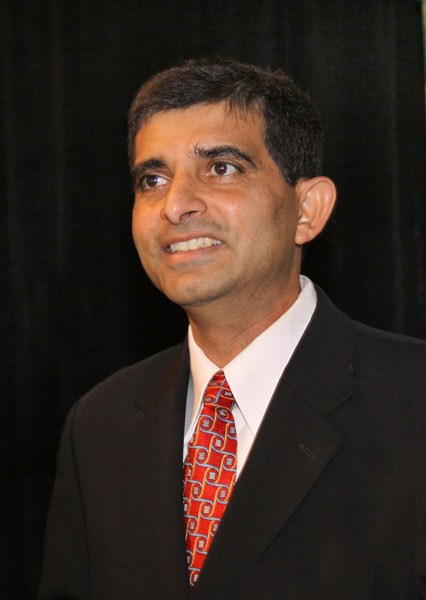Varshney study discredited

varshney:Dean of the College of Business Administration has been criticized by many professionals about his report on Assembly Bill 32.:Courtesy Photo
March 10, 2010
The dean of the College of Business Administration at Sacramento State has been criticized for his report on Assembly Bill 32, California’s climate change legislation, which critics claim contains faulty methodology and an apparent bias.
The report, titled “Cost of AB 32 on Small Businesses,” was written by Sanjay Varshney, dean of the College of Business Administration, and business administration professor Dennis Tootelian. The authors’ report finds that AB 32 will cost California small businesses $182.6 billion in gross state output and 1.1 million jobs. But critics have repudiated the authors’ findings, methodologies and intentions.
AB 32 is the California climate change legislation, which would work to reduce greenhouse emissions to 80 percent of 1990 levels by 2050. This would be done through state regulations, and setting up a cap-and-trade system.
“I was quite amazed when I read it,” said James Sweeney, director of the Precourt Energy Efficiency Center at Stanford University, who wrote a review on the author’s findings. “I don’t see how anyone could get it so wrong.”
Varshney declined to comment on the report.
Varshney told the Sacramento Business Journal, “I haven’t really kept up with the debate.”
Tootelian also said he had nothing further to add to the report.
“We conducted an independent and unbiased study, and certainly support the spirit of AB 32,” he said in an e-mail. “Our study estimated the costs, and we have no other comment. We understand that some agree and disagree with our findings.”
Critics are peeved that the authors count only the costs of AB 32, and omit any possible savings that would result from AB 32, because they find them to be “speculative.”
Sweeney said only counting the costs was not appropriate.
“(They) just systematically say we will buy into all the costs increases and discount all the costs reductions,” Sweeney said.
When accounting for the extra costs in transportation, the authors used the Air Resources Board’s estimated $30-a-month savings for those who buy energy-efficient cars. The authors multiplied this by the number of cars per household and counted this as a cost to all consumers. From this, the authors estimated that transportation costs will increase $756 per year for gasoline.
“That’s just truly weird, I don’t know what other way to describe it,” Sweeney said.
Many other experts have criticized the report including Matthew Kahn, professor of economics and public policy at UCLA; Frank Ackerman, of the Stockholm Environmental Institute; and James Fine of the Environmental Defense Fund, among others.
The report on AB 32 is not the only report by Varshney and Tootelian to be criticized. The pair also wrote a report on overall state regulation, which met with similar criticism.
“For a guy who purports to be a professor, this is an embarrassment to himself and an embarrassment to the school,” said Chris Thornberg, economist and founding principal of Beacon Economics.
Thornberg said the report committed fatal flaws in basic statistical analysis. The authors used regression analysis, a statistical technique used to test one variable while controlling for many others. The report looked at state output, but did not control for the number of workers and amount of capital in California.
“The results are so screwy and crazy,” Thornberg said. “It’s so bad that if a freshman student handed this to me, I wouldn’t even give him an “F,’ I would call it incomplete and hand it back to them.”
Hank Ryan, of Small Businesses California, a group of 4,000 small businesses that support AB 32, rejected the authors report on AB 32 as well.
“That study is not funded by anyone closely related to small businesses,” Ryan said.
According to one report, Varshney and Tootelian were paid $54,000 by the Small Business Roundtable to conduct their report on AB 32.
Steve Maviglio, communication studies lecturer at Sac State, is a spokesman for Californians for Clean Energy and Jobs, which is leading a campaign against a proposed initiative to suspend AB 32.
“What’s troubling about the survey is that it’s so far off the mark and our opponents use it at every turn,” Maviglio said. “They all use it and cite it as chapter and verse.”
Sweeney said he was inspired to write his review because he witnessed a representative of gubernatorial candidate Steve Poizner cite the report to show why he disapproved of AB 32.
“The Varshney study has been used by opponents of doing anything about global climate change,” Sweeney said. “What I hope in my analysis is that people will say, “We can continue the debate, but not use the Varshney study.'”
Timothy Sandoval can be reached at tsandoval@statehornet.com.































































































































